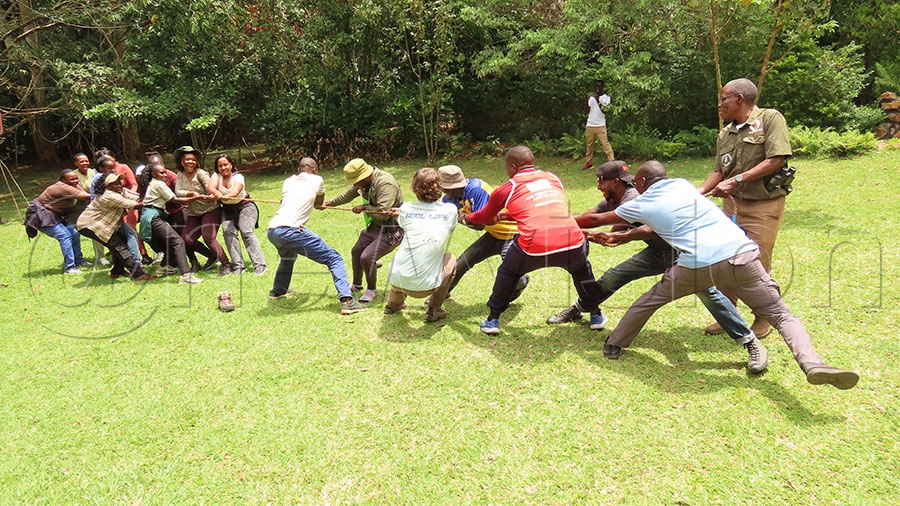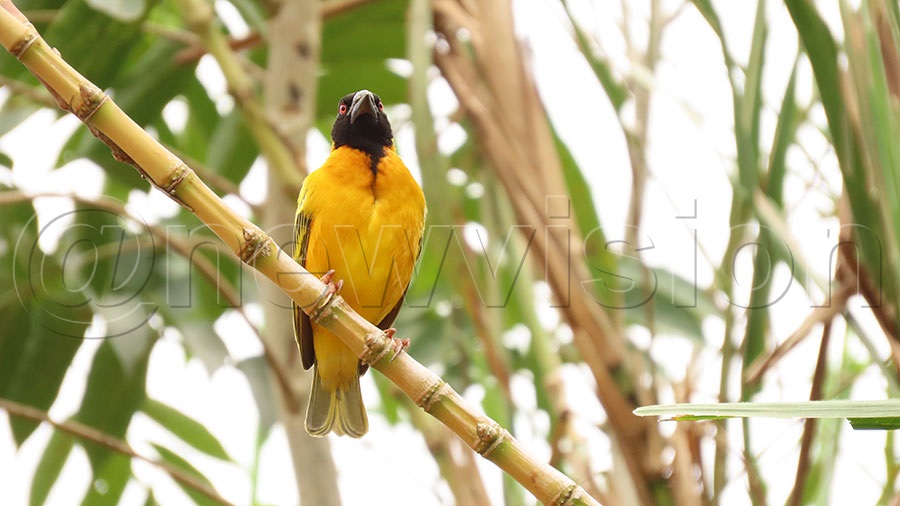Mpanga forest comes alive for World Vulture Day
Armed with binoculars, cameras, and boundless curiosity, they braved insect bites, thorny trails, and a soaking downpour. For nature lovers, it was bliss wrapped in endurance.
All eyes, noses and ears for birds in Mpanga Forest. Photo by Titus Kakembo
Mpanga Forest pulsed with life last weekend as birders, photographers, and butterfly enthusiasts gathered to mark World Vulture Day.
Armed with binoculars, cameras, and boundless curiosity, they braved insect bites, thorny trails, and a soaking downpour. For nature lovers, it was bliss wrapped in endurance.
“This event is traditionally held on the first Saturday of September,” explained veteran birder Herbert Byaruhanga as he welcomed the crowd. “But Uganda’s tourism calendar was packed this month, so we moved it to the second Saturday. The date matters less than the message: vultures are in trouble. Their habitats are shrinking. We urge every Ugandan to plant at least one tree to give them a fighting chance.”
Nature’s Misunderstood Guardians
Often dismissed as ugly or ominous, vultures are in fact nature’s clean-up crew. “Can you imagine how many rats and diseases would overwhelm us without vultures?” Byaruhanga asked.

“They balance the ecosystem. Today, as we search for vultures, let’s also appreciate the symphony of other birds. Mpanga is alive with whistles, tweets, and fluttering wings. Whisper, listen closely, and the forest will reveal its secrets.”
Bird guide Robert Bahindi offered a scientific lens into the vulture’s role. Feeding on carcasses, they prevent the spread of disease with stomach acids strong enough to neutralize toxins. Their bald heads aid hygiene and cooling, while their hooked bills tear flesh with precision. “They may lack powerful talons, but they’re perfectly adapted for their job,” Bahindi explained. “Globally, we classify them as Old World vultures (Africa, Europe, Asia) and New World vultures (the Americas).”
Mpanga: A Living Classroom
The forest rewarded patient observers. Monkeys leapt noisily through branches, rustling creatures stirred in the undergrowth, butterflies danced in shafts of sunlight, and birdcalls formed a vibrant chorus overhead.
For Francis Taga, board member of Nature Uganda, the day was about more than spotting vultures. “Bird conservation isn’t seasonal. Birds shouldn’t only be remembered as Christmas turkeys or roadside roast delicacies. Uganda hosts 10 percent of the world’s bird species. The question is: how many can you name—or have actually seen?” he challenged.

A weaverbird is one of the noisest birds in the world. Photo by Titus Kakembo
At the forest’s eco-lodge, Abdon Karekoona reminded guests that Mpanga offers more than a quick birdwatching stop. “As urbanisation erases green spaces, Mpanga reconnects us to nature,” he said.
The Vulture’s Fragile Future
Uganda is home to several vulture species, including the African White-backed, Palm-nut, Hooded, Rüppell’s, Lappet-faced, White-headed, and Egyptian vultures. Each plays a vital role in disease control by consuming decaying carcasses.
But their survival is under threat. Poisoning, habitat loss, and human-wildlife conflict are driving populations into steep decline. Even protected areas like Murchison Falls National Park have not been spared. Conservationists warn that without urgent action, Uganda risks losing these winged custodians of cleanliness and ecological balance.
Birding Goes Digital
A new generation is amplifying the conservation message online. Content creators Joseph Sozzi and Henry Bahat are documenting Uganda’s birdlife for global audiences. “The Shoebill, Grey African Parrot, and Crested Crane are already drawing international attention,” Sozzi noted. “Tourists are reaching out for guidance—where to stay, which bird guides to hire, how to plan their trips. Social media is turning birding into big business.”
A Call to Action
World Vulture Day is more than a calendar event, it’s a call to protect both birds and people. Vultures’ survival is directly tied to ecosystem health and human well-being.
In the dappled light of Mpanga Forest, the message rang clear: plant a tree, preserve a wetland, and value birds beyond the dining table. The future of Uganda’s vultures and the balance of its ecosystems—depends on choices made today.